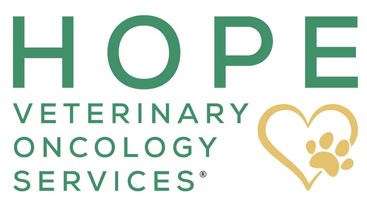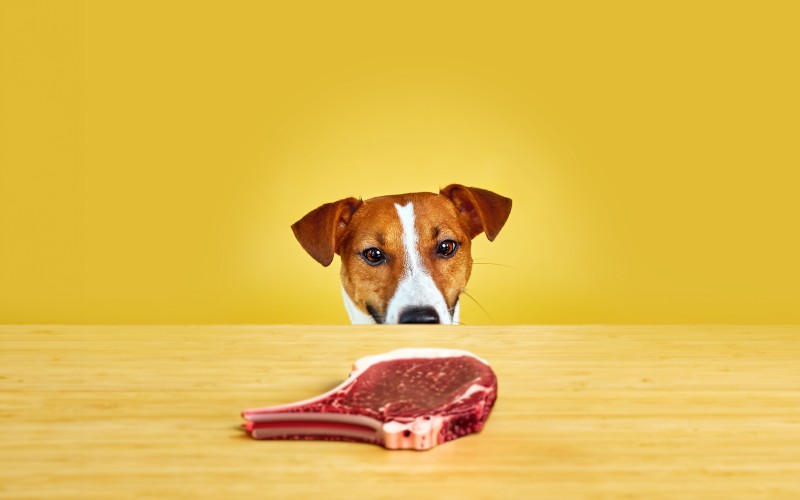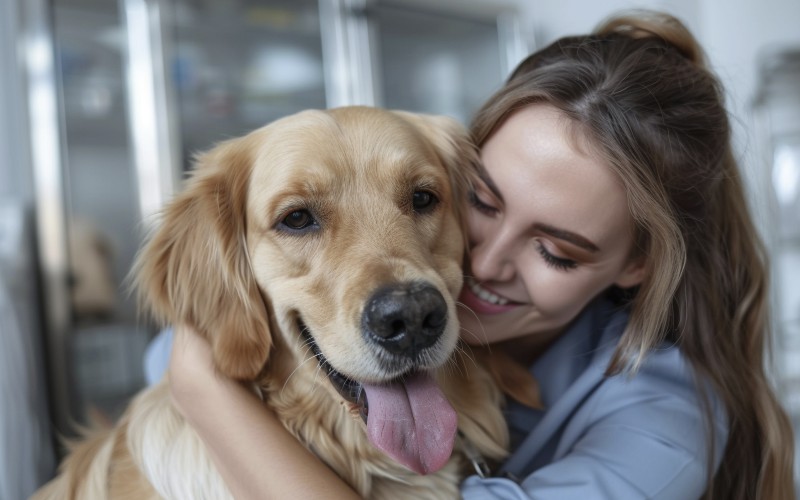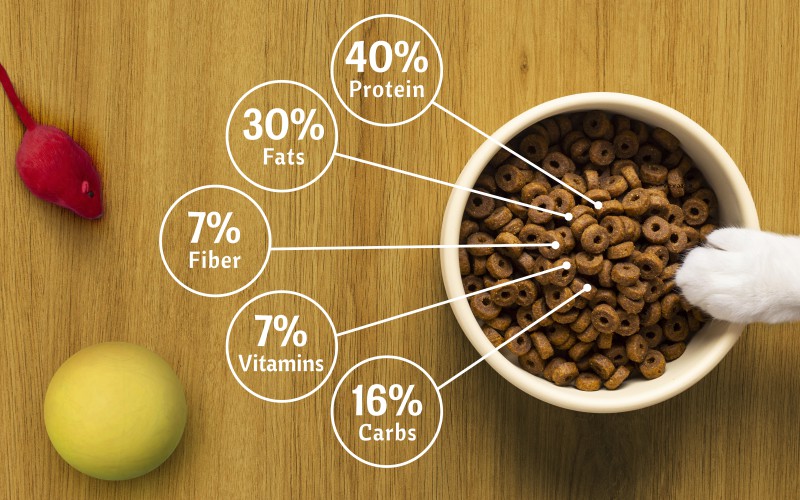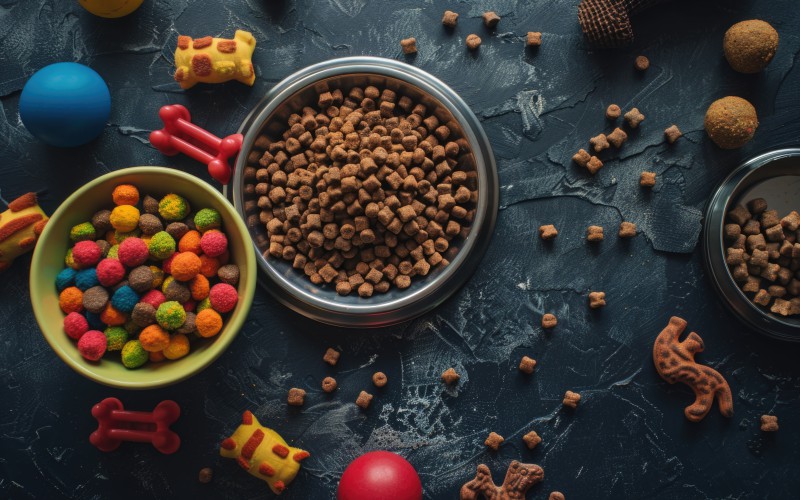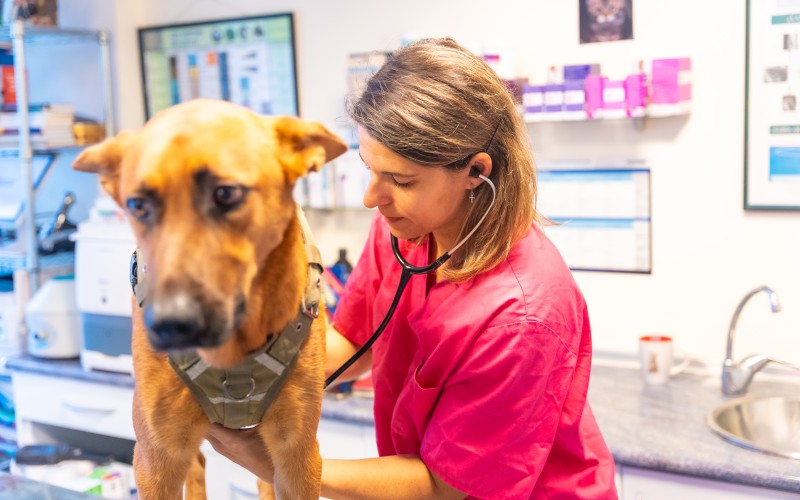To get the news that your dear pet has cancer can be a heart-wrenching moment. You feel a lot of uncertainty and worry. You want the best for your furry friend, and I feel exactly the same. Putting your pet’s health first – especially with the right food – can actually make a difference in their health during this tough and difficult time.
A good diet can help with their immune system, and it also helps them keep up their strength to deal with the side effects of treatment better. This is becoming a hot topic in pet care!
Taking care of a sick pet is tough, though. Remember, you are not alone in this process. A lot of people have walked this path before and can give you much-needed help.
Let’s talk a bit about how thoughtful steps with food can make a difference!
Pet Cancer and Nutrition
Let’s talk about how to detect pet cancer early and how you can help with the treatment and management! It’s super important to know all the types of pet cancers and how they are related.
You might see lymphoma, osteosarcoma, and mast cell tumors. These can show up with things like weight loss, vomiting, and unusual swellings. Recognizing these signs early can make a real difference – it can definitely save your beloved pet’s life. Did you know that 1 in 4 dogs will get neoplasia at some point?
When it comes to types of cancer, each needs a different nutrition strategy. I think it’s pretty interesting how nutrition and cancer are linked – especially with carbohydrates. Cancer cells love carbs because tumors use them to grow. It’s pretty interesting how keeping carb levels low, around 25% or less on a dry-matter basis, can be helpful.
You should think about trying a high-fat and low-carb diet. Cancer cells have a tough time fat for energy, and raising protein intake to about 30-40% on a dry-matter basis is recommended too. It helps keep lean muscle mass for pets going through cancer treatment. And guess what? Higher levels of Omega-3 fatty acids in your pet’s diet can actually have an anti-tumor effect.
So, what should your nutritional goals be? Mainly, you want to keep lean muscle, reduce metabolic and gastrointestinal problems, and help with your pet’s quality of life. Picking therapeutic foods instead of regular ones is usually better because they give you higher digestibility and specific nutrients that benefit pets with any cancer. It’s true! Creating a balanced homemade diet is tough and can cause some nutritional deficiencies. Consulting with a veterinary nutritional specialist might be helpful.
Also, you might choose to stay away from raw diets for pets with cancer. The danger of bacterial contamination is risky and can harm your pet’s already weakened health.
Next, let’s look at the effect nutrition has on cancer care.
Role of Nutrition in Cancer Care
Eating right is super important for the health of your pets – especially if they have cancer. I think that with the right food, your furry friends can keep their weight, get a stronger immune system, and handle side effects from cancer treatments quite a bit better!
So, what should you shoot for? You need to take a look at a balanced diet that has specific nutrients known to help pets with cancer.
For dogs, you should keep protein levels between 30 and 40%dry matter (DM). Cats need a bit more protein, so shoot for 35 to 45% DM. Try to limit carbs to around 25% DM for dogs because that can help curb tumor growth. High-fat levels are good, ranging from 25 to 40% DM – especially if you add omega-3 fatty acids. That should make up at least 5% DM. These nutrients are important in supporting your pet’s general health, and they give them energy and help to keep a bit of muscle mass.
Does a special diet make a difference? If it’s commercial diets or homemade meals, a balanced nutrient profile is what you need. Commercial diets are sometimes made to meet the needs of pets who have cancer, but if you like homemade diets, talk to a veterinary nutritionist, and they can give you customized advice. That makes sure the diet is balanced and fits your pet’s health needs.
It’s important to remember, though, that even good nutrition is not a cure for cancer. It works best as part of a strong care plan that includes medications, treatments, and regular vet check-ups. But what good nutrition does is it helps with the quality of life for your pet. It’s stronger and more resistant to the effects of cancer and its treatments.
Again, try to stay away from raw diets because they pose a danger of bacterial contamination. That can be especially harmful to pets with weakened immune systems. Instead, you can use well-cooked foods or quality commercial diets made specifically for veterinary use.
Research and expert opinions back up these dietary changes. Studies show that a well-balanced diet, customized to the needs of pets with cancer, can help manage symptoms and help with general health. Just to give you an example, high levels of omega-3 fatty acids are found to reduce inflammation and might even slow tumor growth. So, what kinds of foods are good for this kind of nutrition? Let’s dig into that next.
Which Foods Help with Nutrition?
When it comes to foods for the nutrition of pets with cancer, you should think about specific nutrients that give them health benefits. Quality lean protein helps keep lean body mass and general health – pets battling cancer need this. You should try proteins like chicken, turkey, and fish. These sources give them lots of amino acids and have less unhealthy fats compared to red meats.
Why should you add vegetables like cruciferous ones and mushrooms to your pet’s diet? Cruciferous vegetables like broccoli and kale have antioxidants that can neutralize free radicals! Toxins from some cancer cells can be harmful. Mushrooms like shiitake and maitake have bioactive compounds that are great for the immune system. Adding these veggies is easy. Just steam them and mix them with your pet’s regular food.
Let’s talk about omega-3 fatty acids. These are found in sardines and other fatty fish and are known for their anti-inflammatory and anti-tumor properties. Omega-3 fatty acids at levels of 5% dry matter (DM) or more in your pet’s diet can help manage inflammation and might also slow tumor growth. Sardines are a great source, and you can add them to your pet’s meals a few times a week. It’s easy and helpful.
What about high-calorie foods? These are especially helpful for pets that may have lost weight because of cancer. Foods rich in quality proteins and fats – like eggs – can help keep muscle mass and give you the needed calories. Start with small portions and slowly increase the amount as your pet gets used to it to help stay away from stomach issues, too.
Prebiotic fibers from fruits, vegetables, and whole grains can be helpful in supporting gut health. These fibers keep a healthy gut microbiome and promote steady stool quality for pets undergoing cancer treatments. Just to give you an example, berries are prebiotic and also loaded with antioxidants and vitamins. It’s a great addition to your pet’s diet and gives a lot of benefits. Adding L-carnitine can also be helpful for energy production and muscle maintenance. L-carnitine can be found in some red meats and fish, and amino acids are present in all kinds of quality proteins.
Making these dietary adjustments and adding these nutrient-rich foods to your pet’s diet gradually can make a difference in their general health. A little effort goes a long way.
Next up, let’s talk about which foods pets should stay away from for their safety and health. Here comes the part.
Creating a Balanced Diet Plan
To make a balanced diet plan for your pet with cancer, you need to check the numbers and the balance of nutrients. So, the first thing for is talk to your veterinarian or veterinary oncologist! Then, choose the best diet for your dog because that way, you know the diet meets the nutritional needs and follows the Association of American Feed Control Officials (AAFCO) standards. Your pet’s diet should have 30% to 40% protein and less than 25% carbohydrates. It should also have more than 2.5% fiber and 25% to 40% fats on a dry-matter basis.
Now, let me show you a sample meal plan. Start with a lean protein like boiled chicken or fish. Mix in some steamed vegetables like broccoli or spinach. Add a small amount of whole grains like brown rice to meet the carbohydrate need. Finally, top it with a splash of healthy oils like fish oil for omega-3 fatty acids. That mix will make sure your pet gets the needed nutrients. So, how can you take a look at the challenges in this meal preparation? Gradually introduce new foods to your pet’s diet to stay away from digestive issues. Stay away from raw diets because of the dangers of bacterial contamination.
When it comes to a home-cooked diet, talk to a veterinary nutritionist to make sure it’s balanced. Think about commercial diets, too – they can be an option if they meet the nutritional standards, and they can be fun for your dog. Try it out. Supplements can play a role, too. Think about probiotics, vitamin B, amino acids, iron, and omega-3 fatty acids. These are some examples that can support your pet’s health. Remember! Always talk about any supplements with your veterinarian to make sure they’re good for your pet’s specific condition.
When making meals, check portion control. Consistency and following a regular feeding schedule help keep your pet’s energy up and support their health. It’s also important to think about your pet’s likes and make the meals fun. Also, consult your veterinarian or pet nutritionist sometimes to adjust the diet as needed based on your pet’s response and progress. Stay vigilant.
Consult With Your Vet Often
Handling the challenges of pet cancer care needs a lot of love – and the right information and resources. If you think about what you’ve learned about the right food for pets with cancer, it’s clear that the right diet can help with the health and life of our furry friends. When you plan and remember these things, good nutrition helps pets during their tough times. It helps them be stronger and fight the disease better.
But just knowing this isn’t enough, is it? Handling pet cancer means having steady and open conversations with your vet. Make regular visits to the vet and try customizing a diet plan for your pet’s needs. That way, some complications can be caught early for better treatment! Isn’t it nice to know that with expert advice and regular check-ups, you are not alone in this process? Working with your vet makes a difference for both you and your pet.
Let’s not forget about the loving and strong care that special services can give you.Hope Veterinary Oncology Services is here to give support to pet owners facing the scary and uncertain challenge of cancer care. Our mobile veterinary oncology unit comes right to your door and lessens stress for both you and your pet by giving needed care. With a team trained in fear-free® practices and a holistic strategy to veterinary oncology, we are committed to improving your pet’s life quality and giving the assistance you both need.
Feeling overwhelmed by handling this alone? Think about reaching out to us – visit HopeVetOncology.com to see all the services we can give you for your pet, meet our kind team, and learn how our expert services can help you give the best care to your pet. Remember, you’re not alone, and with the right support and resources, you can have a positive effect on your pet’s health.
